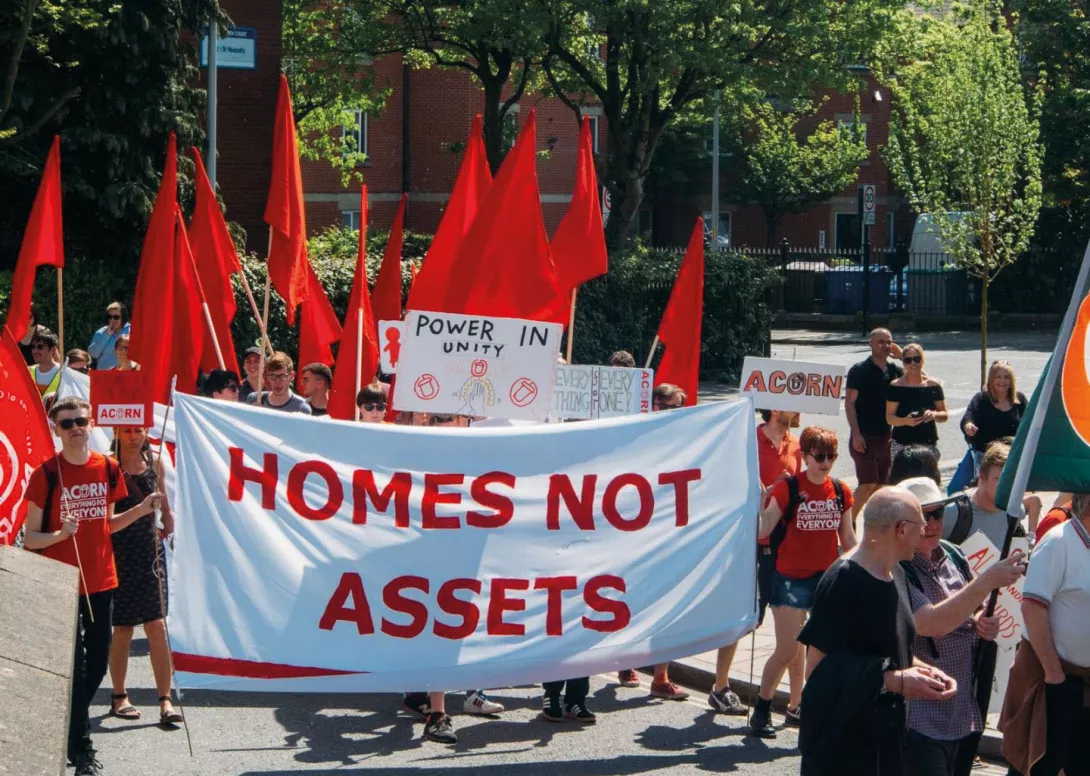
LABOUR says if it is elected, their big idea to help the housing crisis is deregulation.
Everybody knows not enough houses are being built and the price of houses is too high, leaving many trapped in poor quality private rented accommodation or struggling with hard-to-afford mortgages. Labour proposes making planning laws more developer-friendly.
They hope that if developers find it easier to build on the green belt, overcome local rejection of proposed estates, or get free development areas in “new towns,” they will build more houses and prices will come down.
But the latest accounts of Bloor Homes, like the accounts of so many housebuilders, suggest this “market” solution to a market failure won’t work.
Bloor Homes are a mid-sized housebuilder, but one with a fair political influence. John Bloor is one of the Tories’ top donors, having given the party around £2.7 million since 2015.
The latest accounts, released this month but covering the year to June 2023, show Bloor Homes is finding the market a bit tighter. The accounts note that “increases in mortgage loan rates” have “made the landscape more challenging” for housebuilders, while they are also being squeezed by “cost inflation in our supply chains.”
Bloor Homes turnover dropped by 1.3 per cent — but it still stands at a whopping £1.34 billion. And that’s just for building and selling 4,252 houses in the year. You can run a billion-pound firm and be considered a “volume builder” by putting up this small number of houses.
The figures imply £317,000 per house, which was slightly above the average house price that year. Bloor says it is a mixed housebuilder “ranging from starter homes to executive houses,” along with some building for “registered social landlords.”
But the accounts make clear where they think the best money is to be made. Profits dropped by 10 per cent for Bloor, although they are still a very handsome £287 million a year. Bloor complains “turnover and profit before taxation have decreased since the last financial year, despite selling additional plots.”
This is due to issues like inflation, but also because “the proportion of social housing to private housing sales has increased,” a split which must be regularly “monitored.” What Bloor is stating is the obvious issue.
Social housing is not a big money maker. Why would you want to make large numbers of cheap houses when you can make your profits from much smaller numbers of expensive houses?
The market might be failing those who want houses, but it is working perfectly fine for the firms that make them. If Labour wants to increase the low-cost housing supply, it needs to follow the traditional route of allowing councils to build lots of low-cost housing.
Tweaking the market with deregulation to try to persuade firms like Bloor to build more, and more cheaply, will only deliver marginal changes.















